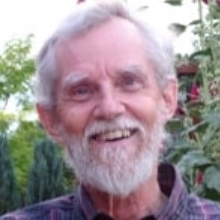Transdisciplinarity in the Humanities
A special issue of Humanities (ISSN 2076-0787). This special issue belongs to the section "Transdisciplinary Humanities".
Deadline for manuscript submissions: closed (30 September 2022) | Viewed by 24009
Special Issue Editors
Interests: medieval and early modern cultural history and humanities; premodern gender studies; history of mentality; comparative literature
Special Issues, Collections and Topics in MDPI journals
Interests: machine consciousness; philosophy of mind; moral philosophy; political philosophy; business ethics; e-Learning in philosophy
Special Issue Information
Dear Colleagues,
All research aims at gaining insight, knowledge, and also wisdom. The university is one of the central places where research is carried out, though there are, nowadays, also other sites, such as industry, private research entities, etc. The medieval university (Paris, Bologna, Montpellier, Salamanca, Oxford, Pisa, etc.) served the purpose of giving students a broad and deep education, and the modern university as established by Wilhelm von Humboldt (Berlin, 1810) has continued with this tradition, laying the foundation of what we call today General Education (Liberal Arts). Research and teaching go hand in hand, especially at the university, where we aim at educating the young generation about the latest research and at preparing students for their own future research. On the one hand, research means deep specialization; on the other, as is emerging very strongly at the moment, exploring new forms of synergies, collaboration, and thus transdisciplinarity.
In the sciences, this approach has already been well established, but this is only one side of the coin. Coming from the humanities, we are currently on the threshold of entering a new world wherein literary, artistic, philosophical, religious, and cultural studies are increasingly combined with medicine, artificial intelligence, mathematics, music, psychology, anthropology, and other research fields. In many ways, this appears to be a return to the medieval Trivium and Quadrivium, only now on a more elevated level. After all, ethics, morality, philosophy, human values, etc., have central importance in everything we do, and research specialization must never forget its social obligations.
This volume aims at exploring the principles of transdisciplinary studies, in the full awareness of the tentative but also profoundly inspiring nature of this new approach. What we need at the current moment would be intensive communication and exchange among the various players at universities or in research at large. Administratively, of course, there continue to be huge barriers to facilitating shared investigations between, say, neuroscience and German studies. The medical humanities, however, have already embarked on remarkable transdisciplinary collaboration with amazing results, and in this volume, we challenge our colleagues to think through the various possible avenues, methodologies, data sets and analyses on a new plane of investigation.
Some of the greatest intellectuals throughout history have always been, of course, entirely transdisciplinary in their outlook and thinking, and so we can only hope to become dwarves once again sitting on the shoulders of giants, to use a medieval trope. As dwarves in such a position, we are enabled to look further, to develop new ideas, influenced by researchers in different disciplines, and can thus hope to move forward in exploring innovative concepts about our natural and spiritual world. Both have always cooperated most intimately, and cannot really operate without the respective other, but modern research is only now beginning to rediscover those connections (for a sixteenth-century example, see, e.g., Paracelsus).
The current volume aims at initiating this new process of developing future-oriented synergies, as the two initial articles by Albrecht Classen and Piotr Bołtuć outline, each from a different perspective, and yet intriguingly sharing some central interests. After all, true research means the ever-growing exploration of new ideas, new concepts, new materials, and new comprehensions of what holds this world together, and what makes life worth living. Johann Wolfgang von Goethe expressed this already, in a somewhat clairvoyant manner: “Dass ich erkenne, was die Welt / Im Innersten zusammenhält” (Faust I, monologue). If we can use, for instance, a new mathematical formula to understand Rilke’s poems better, and if we can draw from Shakespeare’s plays to figure out mathematical problems, all sides will profit from each other.
Prof. Dr. Albrecht Classen
Prof. Dr. Peter Boltuc
Guest Editors
Manuscript Submission Information
Manuscripts should be submitted online at www.mdpi.com by registering and logging in to this website. Once you are registered, click here to go to the submission form. Manuscripts can be submitted until the deadline. All submissions that pass pre-check are peer-reviewed. Accepted papers will be published continuously in the journal (as soon as accepted) and will be listed together on the special issue website. Research articles, review articles as well as short communications are invited. For planned papers, a title and short abstract (about 100 words) can be sent to the Editorial Office for announcement on this website.
Submitted manuscripts should not have been published previously, nor be under consideration for publication elsewhere (except conference proceedings papers). All manuscripts are thoroughly refereed through a double-blind peer-review process. A guide for authors and other relevant information for submission of manuscripts is available on the Instructions for Authors page. Humanities is an international peer-reviewed open access semimonthly journal published by MDPI.
Please visit the Instructions for Authors page before submitting a manuscript. The Article Processing Charge (APC) for publication in this open access journal is 1400 CHF (Swiss Francs). Submitted papers should be well formatted and use good English. Authors may use MDPI's English editing service prior to publication or during author revisions.






